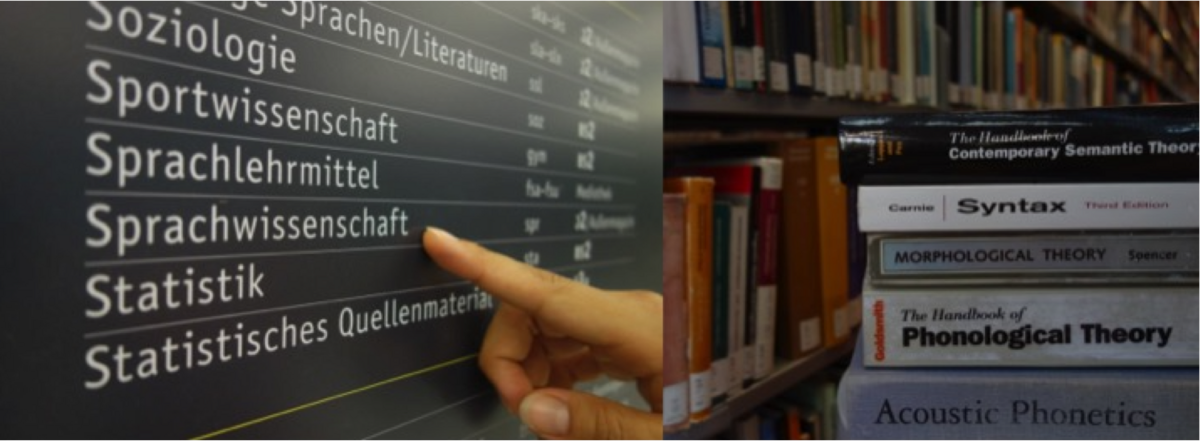I. About the degree
The MA in Multilingualism is an innovative 2-year Master’s programme that incorporates cutting edge research in linguistics and multilingualism and provides training in multilingualism across the lifespan.
The programme is taught in English by world leading experts in linguistics and multilingualism and suits students who have a background in linguistics, education, psychology, cognitive science, speech & language therapy or related fields and have a strong interest in how language develops across different types of bilingual and multilingual groups.
Within this 2-year programme students develop their linguistics knowledge and skills, gain training in research design, research methods, and statistics, and receive solid training in a range of areas of multilingualism, including psycholinguistic, neurolinguistics, and sociolinguistic perspectives.
The MA in Multilingualism concentrates on topics in current linguistics research that bear most directly on two areas of multilingualism:
Multilingualism and the individual
- Language acquisition
- Early childhood multilingualism
- Second language acquisition in children and adults
- Third language acquisition
- Acquisition of heritage languages
Aspects of multilingualism in society
- Multilingualism in the classroom
- Multilingualism and migration
- Language contact
- Language attrition
- Language change in European and non-European languages
II. About the department
The MA programme in Multilingualism is hosted at the Department of Linguistics, a research-intensive department that is part of the Excellence Initiative of the German Federal Ministry of Education and Research and the German Research Foundation. The Excellence Initiative aims to promote cutting-edge research and to create outstanding conditions for young scholars at universities, to deepen cooperation between disciplines and institutions, to strengthen international cooperation of research, and to enhance the international appeal of excellent German universities.
The Department of Linguistics has 12 professorships that specialise in theoretical and experimental linguistics and cover expertise across all linguistic domains (phonetics, phonology, syntax, semantics, pragmatics) within a synchronic as well as a diachronic perspective. Particularly relevant for the MA in Multilingualism is the expertise in language acquisition, psycholinguistics, neurolinguistics, and computational linguistics.
The Department of Linguistics has state-of-the-art facilities that include, among others, reaction time, eye-tracking, ERP, and baby-lab facilities that can be used by students for their MA dissertation.
III. The degree structure
The MA Multilingualism is designed as a 2-year programme (4 semesters) with a workload of 120 ECTS-points.
Year 1: 1st and 2nd semester at the University of Konstanz
In the first and second semester, students attend courses in linguistics, research methods, multilingualism and the individual, and multilingualism in society at the University of Konstanz. The linguistics courses provide solid grounding in linguistics at all levels of analysis. Research methods courses include training in quantitative methods and statistics as well as experimental design and methods in language acquisition research. Courses on multilingualism and the individual include courses on bilingual first language acquisition, heritage language acquisition, second language acquisition, third language acquisition, psycholinguistic, neurolinguistics, and clinical aspects of multilingualism. Courses on multilingualism in society include courses on sociolinguistic and sociological aspects of multilingualism, language contact, language change, and language attrition.
Year 2: 3rd semester
In the third semester students do a Study Abroad visit at a University of their choice or do an Internship at an organisation in Germany or abroad. This enables students to gain international experience, put their theoretical knowledge into practice, and develop professional and practical skills. The Department of Linguistics is collaborating with a large number of Universities worldwide and can recommend suitable departments for the study abroad semester. It also has excellent relationships with a range of organisations in Germany and abroad that have hosted students for an internship in the past.
Year 2: 4th semester
The fourth Semester is dedicated to research and the MA thesis.

Numbers and deadlines:
• Application deadlines: 15 January for the April intake and 15 May for the October intake
• Duration of the degree: 4 Semesters
• Number of places available: 30 per year
• Total number of ECTS: 120
IV. Language skills and language of instruction
Language(s) of instruction
The language of instruction is English. Upon availability, there might also be courses taught in German or other modern languages.
With your application you will have to provide a documentation of advanced English language skills (spoken and written English), level C1 of the Common European Framework of Reference for Languages.

V. Study abroad / Internship
A special feature of the MA in Multilingualism is the third semester study abroad/internship. Students can either spend one semester at one of our partner universities abroad or undertake an internship with a company/institution/research group relevant to the degree.
- The Department of Linguistics is collaborating with a large number of universities worldwide that conduct multilingualism research and can recommend suitable departments for the semester abroad part of the programme. Students who are interested in studying Multilingualism abroad will find more information on our webpage on international participation. – Please note that if you start the MA Multilingualism in the summer semester, there will be only a limited range of options for your study abroad semester, especially if you are interested in going to a non-EU country.
- Students who prefer to gain practical experience in their 3rd semester can do an internship for 21 weeks at an academic or non-academic organisation, e.g., a school, a company, an NGO, a university lab. The Linguistics Department has excellent relationships with both academic and non-academic organisations that have been used by students in the past for their internship. Students who would like to undertake an internship should contact the departmental study advisers for further information at: ma.multilingualism(at)uni-konstanz.de
VI. Prospects and career opportunities
The combination of knowledge and training in theoretical aspects of linguistics, research methods, and multilingualism and their application prepares students for academic and non-academic careers.
Students who graduate from the MA in Multilingualism are excellent candidates for PhD programmes in Linguistics or related disciplines.
Practical skills acquired in the programme are applicable to professions in:
- Educational institutions
- Administrative public institutions
- International cultural institutions
- International associations, organisations and global enterprises which operate in a multicultural environment.
VII. Tuition fees
- Students from European Union (EU) member states or from the European Economic Area (EEA) are not required to pay tuition fees for their first MA degree in Germany. This also applies to international students who have a German Abitur.
- Students from countries outside of the EU or EEA are required to pay 1,500 EUR in tuition fees per semester
- You can find further information about tuition fees and scholarships on our central website.

VIII. Admission requirements
- An above average Bachelor's degree in Linguistics, Education, Psychology, Speech & Language Therapy, or related discipline.
- Since the programme has a strong linguistics component, it is important that students have some previous knowledge in linguistics.
- The grade point average of your Bachelor's degree should at least correspond to the German grade 2.5 (good). Students in the final year of their Bachelor's degree, who have not yet graduated, are welcome to apply.
- Documentation of advanced English language skills (spoken and written English) at level C1 of the Common European Framework of Reference for Languages (eg., IELTS, TOEFL, Cambridge, etc., or Bachelor's degree English).
- An application letter (at most one page) to demonstrate your suitability and motivation for the study programme.
A description of the admission requirements is found in the Admission Regulations of the University of Konstanz.
How to apply for the MA Multilingualism?
To apply for the programme please complete the online application form. Before you start the online application please make sure that you have the following documents at hand:
A proof of your academic degree including details on course work. If you have not received your degree certificate by the end of the application deadline, please attach a documentation of all your examination results so far.
A proof of advanced English language skills (spoken and written English), level C1 according to the Common European Framework of Reference for Languages.
An application letter in English (at most one page), providing information on your motivation and suitability for the study programme.
A current certificate of enrolment or proof of exmatriculation (only if you have studied at a German university; please indicate your 'Fachsemester’ and ‘Hochschulsemester’).
Applicants from China, India and Vietnam: APS certificate (original) issued by the German Embassy of your home country.
We will inform you about the outcome of your application 4 to 6 weeks after the application deadline.

